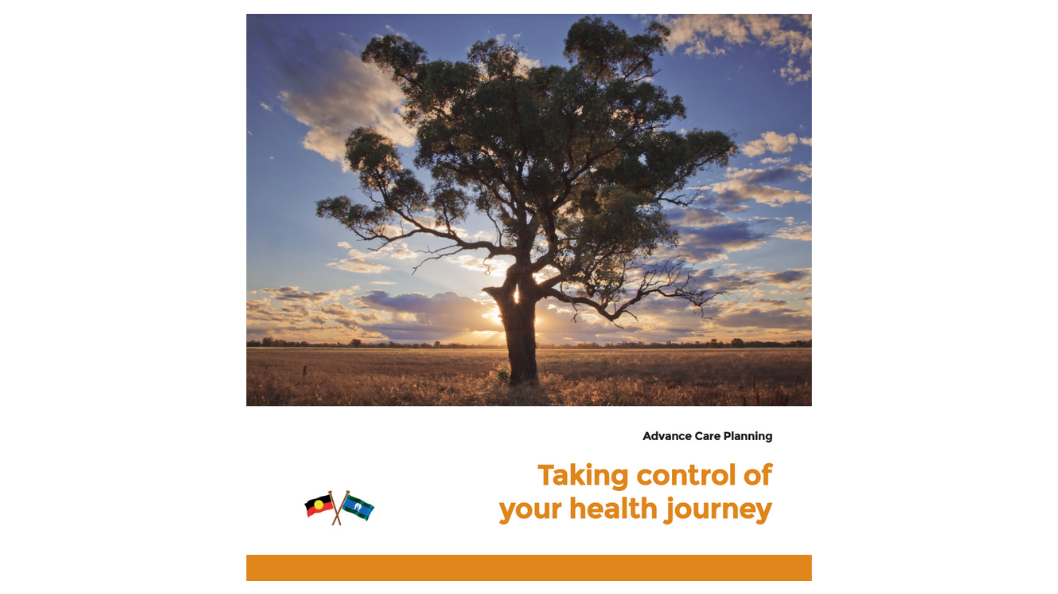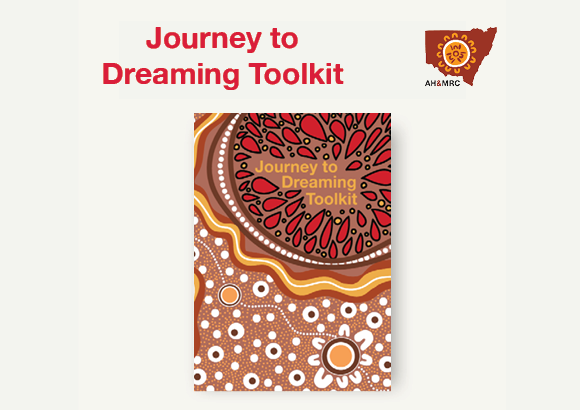Information for individuals
If you got really sick, and you couldn’t speak for yourself, would your family and doctor (or Aboriginal Health Worker) know what you want or don't want with your healthcare?
There is something available to help you plan for such times. It’s called ‘advance care planning’, and the first (and most important) step is just having a yarn about your health and ideas around health care. Letting everyone know what you want is the best way to have a voice even if you become too sick to speak for yourself.

Taking control of your health journey
It may be hard for you and your family to talk about it, but advance care planning can give you and your family peace of mind about your treatment and experiences in the future.
Explore our guide for taking control of your health journey.

Journey to Dreaming Toolkit and Diary
The Aboriginal Health and Medical Research Council has created resources to guide you through end-of-life care.
The Journey to Dreaming Toolkit and Diary provides high-quality information to help you get family-centred palliative and end-of-life care for yourself or a loved one.
Access more culturally relevant resources:
Information for health and care providers
A respectful and appropriate approach to advance care planning for Aboriginal and Torres Strait Islander people ensures their end-of-life journey is inclusive of their individual preferences, values and beliefs, and their cultural heritage.
Considerations for discussing advance care planning
Many Aboriginal and Torres Strait Islander people do not engage in discussions about future medical care and advance care planning. Some may consider discussions about becoming sick or injured, or what will happen towards the end of their life, as ‘family business’ that is not to be discussed with others.
A sensitive approach
When introducing advance care planning to an Aboriginal and Torres Strait Islander person, allow adequate time to provide an appropriate and clear explanation of the benefits to the individual, family and community.
Do not be intrusive and approach difficult conversations gently, giving it time. Come back if necessary at another time to continue the conversation. Respect the person's right to not disclose or communicate.
Issues of death
Some Aboriginal and Torres Strait Islander people will not engage in advance care planning due to sensitivities around issues of death. Health professionals can talk to Aboriginal and/or Torres Strait Islander health workers (for example, an Aboriginal Hospital Liaison Officer) or the person's family for help where possible.
Connection to country
Many Aboriginal and Torres Strait Islander people have a strong connection to their land and country and may be distressed if they need to move into care away from their community.
Documenting their preference to stay on country may be an important aspect of their advance care planning.
Considerations for remote communities
It's more challenging to provide appropriate healthcare to those in remote communities, and to balance their health needs with their wishes to stay on country and with their families.
It may be helpful for healthcare professionals to ask the aboriginal medical service, an Aboriginal and/or Torres Strait Islander health worker or a community service if the person has completed advanced care planning documents.
These services and/or professionals may have knowledge of the person and their family, and also may have knowledge of the community services the person currently uses or can access within their community. They may play an important role in the person's advance care planning.